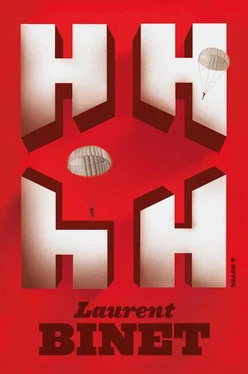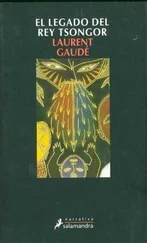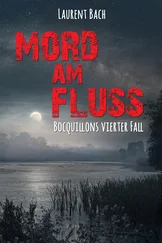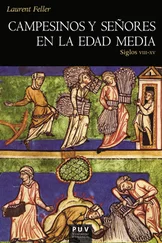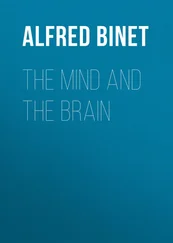Laurent Binet - HHhH
Здесь есть возможность читать онлайн «Laurent Binet - HHhH» весь текст электронной книги совершенно бесплатно (целиком полную версию без сокращений). В некоторых случаях можно слушать аудио, скачать через торрент в формате fb2 и присутствует краткое содержание. Город: New York, Год выпуска: 2012, ISBN: 2012, Издательство: Farrar, Straus and Giroux, Жанр: Историческая проза, на английском языке. Описание произведения, (предисловие) а так же отзывы посетителей доступны на портале библиотеки ЛибКат.
- Название:HHhH
- Автор:
- Издательство:Farrar, Straus and Giroux
- Жанр:
- Год:2012
- Город:New York
- ISBN:978-0-374-16991-6
- Рейтинг книги:3 / 5. Голосов: 1
-
Избранное:Добавить в избранное
- Отзывы:
-
Ваша оценка:
- 60
- 1
- 2
- 3
- 4
- 5
HHhH: краткое содержание, описание и аннотация
Предлагаем к чтению аннотацию, описание, краткое содержание или предисловие (зависит от того, что написал сам автор книги «HHhH»). Если вы не нашли необходимую информацию о книге — напишите в комментариях, мы постараемся отыскать её.
HHhH — читать онлайн бесплатно полную книгу (весь текст) целиком
Ниже представлен текст книги, разбитый по страницам. Система сохранения места последней прочитанной страницы, позволяет с удобством читать онлайн бесплатно книгу «HHhH», без необходимости каждый раз заново искать на чём Вы остановились. Поставьте закладку, и сможете в любой момент перейти на страницу, на которой закончили чтение.
Интервал:
Закладка:
223
On the hospital’s second floor, emptied of all but one of its patients, Heydrich is lying in bed. He is weak, his senses are numbed, his body aching, but he’s conscious. The door opens, and the guard lets his wife, Lina, into the room. He tries to smile at her—he’s happy she’s here. She, too, is relieved to see her husband alive, albeit very pale and bedridden. Yesterday, when she saw him just after his operation, all white and unconscious, she thought he was dead. Even after waking up, he looked barely any better. She didn’t believe the doctors’ reassuring words. And if the parachutists had trouble sleeping, Lina’s night wasn’t very pleasant either.
This morning she brings him hot soup in a thermos flask. Yesterday: victim of an assassination attempt. Today: already convalescent. The Blond Beast has thick skin. He’ll be fine, as always.
224
Mrs. Moravec goes to fetch Valčík. Her husband, the kindhearted railway worker, does not want to let Valčík leave in his current state. He gives him a book to read on the tram, so he can hide his face: Thirty Years of Journalism by H. W. Steed. Valčík thanks him. After he’s gone, the railwayman’s wife tidies his room and, stripping his bed, finds blood on the sheets. I don’t know how serious his injury was, but I do know that all doctors in the Protectorate were legally obliged to tell the police about any bullet wounds, under pain of death.
225
A crisis meeting is taking place behind the black walls of Peček Palace, Commissioner Pannwitz summing up: after studying the clues gathered at the crime scene, his initial conclusion is that the attack was planned in London and executed by two parachutists. Frank agrees. But Dalüge, named as interim Protector the day before, believes the attack points to an organized national uprising. As a preventive measure, he orders that lots of people be shot and every policeman in the region rounded up to reinforce the city’s police presence. Frank looks like he’s going to throw up. All the evidence suggests that this attack was organized by Beneš, and even if that were not true… politically, he couldn’t care less if the internal Resistance is implicated or not. “We must not let people believe that there is a national revolt! We have to say that this was an individual action.” On top of that, if they pursue a campaign of mass arrests and executions, they risk disturbing the country’s industrial production. “Need I remind you of the vital importance of Czech industry for the German war effort, Herr Oberstgruppenführer?” (Why have I made up this phrase? Probably because he actually said it.) Frank, the second-in-command, thought his hour had come. Instead of which, they promoted this Dalüge, who has no experience as a statesman, knows nothing of the Protectorate’s business, and can barely even locate Prague on a map. Frank doesn’t object to a show of force: it costs nothing to unleash terror in the streets, and he knows it. But he remembers the political lessons learned from his master: no stick without a carrot. The previous night’s hysterical raid exemplified the uselessness of such actions. What they need is a well-organized and well-funded campaign of denouncements. That would produce better results.
Frank leaves the meeting. He’s wasted enough time with Dalüge. A plane is waiting to take him to Berlin, where he has a meeting with Hitler. He hopes that the Führer’s political genius will not be overpowered by one of his famous rages. In the plane, Frank carefully plans his presentation of the measures he will recommend. Given yesterday’s phone conversation, it’s in his interests to be convincing. In order not to look like a wimp, he suggests invading the city with tanks and regiments, and cutting off a few heads. But, once again, there must be no mass reprisals. Rather, he would advise that Hácha and his government be leaned on: threatened with the loss of the Protectorate’s autonomy, and with German control of all Czech organizations. Plus all the usual methods of intimidation: blackmail, harassment, et cetera. But all of this, for now, in the form of an ultimatum. The ideal solution would be for the Czechs themselves to deliver the parachutists into their hands.
Pannwitz’s concerns are different. His area of expertise is not politics but investigation. He is collaborating with two brilliant detectives sent by Berlin, both of whom are still stunned by the chaos of “catastrophic proportions” that they found here on arrival. They say nothing about this to Dalüge, but to Pannwitz they complain that they needed an escort just to reach their hotel safely. As for the behavior of those rabid SS dogs, their judgment is damning: “They’re completely mad. They won’t even be able to find their way out of the insane maze they’re creating, never mind find the assassins.” They must proceed more methodically. In less than twenty-four hours, the three detectives have already obtained some important results. Thanks to the witness accounts they’ve collected, they are now in a position to reconstruct exactly how the attack unfolded, and they have a description—albeit rather vague (those bloody witnesses can never agree on what they saw!)—of the two terrorists. But there are no leads on the men’s whereabouts. So they’re searching. Not in the streets, though, like the SS imbeciles: they are going through the Gestapo files with a fine-tooth comb.
And they find that old photo taken from the corpse of brave Captain Morávek—the last of the Three Kings, killed in a tramway shoot-out two months earlier. In this photo, the handsome Valčík looks inexplicably bloated. But it’s him, all the same. The policemen have no clues at all linking this man to the attack. They could easily pass on to the next file, but they decide to investigate this photograph just on the off chance . If this were a detective novel, we’d call it a hunch.
226
A young female Czech liaison officer called Hanka rings the Moravecs’ doorbell. They show her through to the kitchen. And there, sitting in an armchair, she finds Valčík, whom she knows from his days as a waiter in Pardubice, her hometown. As affable as ever, he smiles at her and apologizes for not being able to stand up: he’s twisted his ankle.
It’s Hanka’s job to send Valčík’s report to the Bartos group in Pardubice, so that they can inform London via the Libuse transmitter. Valčík asks the young woman not to mention his injury. As the leader of Silver A, Captain Bartos is still officially his head of mission. But Bartos has never approved of the assassination attempt. Somehow Valčík managed to transfer himself from Silver A to Anthropoid. Given what’s happened, he doesn’t believe he owes an explanation to anyone apart from his two friends, Gabčík and Kubiš (he hopes they’re safe); to Beneš himself (if need be); and, perhaps, to God (Valčík is a believer).
The young woman rushes to the station. But before boarding her train, she stops dead before a new red poster. Immediately she phones the Moravecs: “You should come here and see—there’s something interesting.” There is the photo of Valčík, and beneath: 100,000 crowns reward . There follows a fairly inaccurate description of the parachutist—and that’s another piece of luck to add to the fact that the picture doesn’t look much like him. His surname is mentioned, but his first name and date of birth are both wrong (they’ve made him five years younger). A little note at the end reminds you of the true nature of wanted posters: “The reward will be given with the greatest discretion.”
227
But that poster isn’t the best bit.
Bata built his empire before the war. Starting as a small shoemaker in the town of Zlín, he developed an immense business with shops all over the world, and above all in Czechoslovakia. Fleeing the German occupation, he emigrated to the United States. But even during the boss’s exile, the shops remained open. At the bottom of Wenceslaus Avenue, number 6, is a gigantic Bata boutique. In the shop window this morning the usual display of shoes has been replaced by an assortment of other objects. A bicycle, two leather bags, and—displayed on a mannequin—a raincoat and a beret. All these exhibits were found at the crime scene. They are accompanied by an appeal for witnesses. Passersby who stop before the shop window can read:
Читать дальшеИнтервал:
Закладка:
Похожие книги на «HHhH»
Представляем Вашему вниманию похожие книги на «HHhH» списком для выбора. Мы отобрали схожую по названию и смыслу литературу в надежде предоставить читателям больше вариантов отыскать новые, интересные, ещё непрочитанные произведения.
Обсуждение, отзывы о книге «HHhH» и просто собственные мнения читателей. Оставьте ваши комментарии, напишите, что Вы думаете о произведении, его смысле или главных героях. Укажите что конкретно понравилось, а что нет, и почему Вы так считаете.
